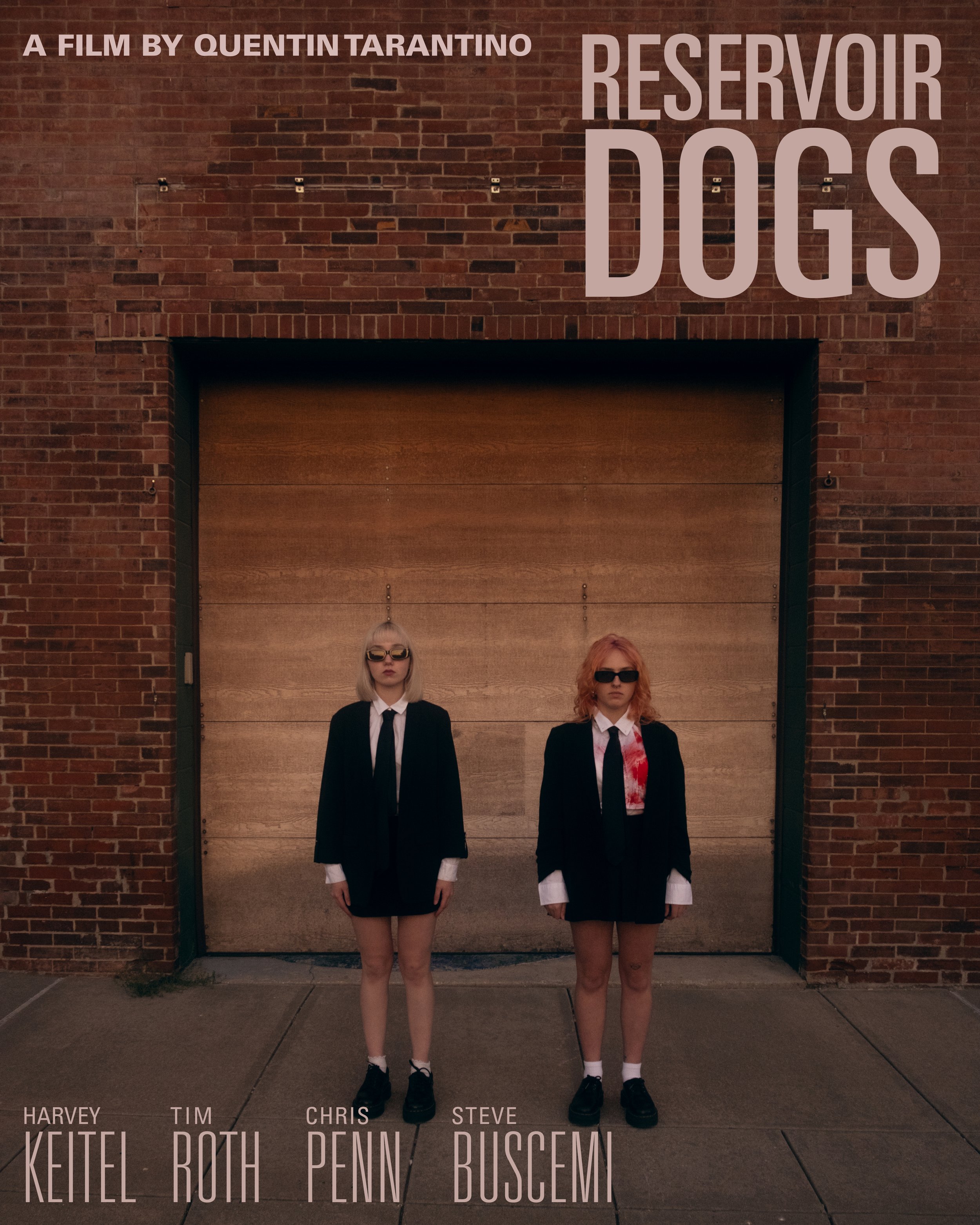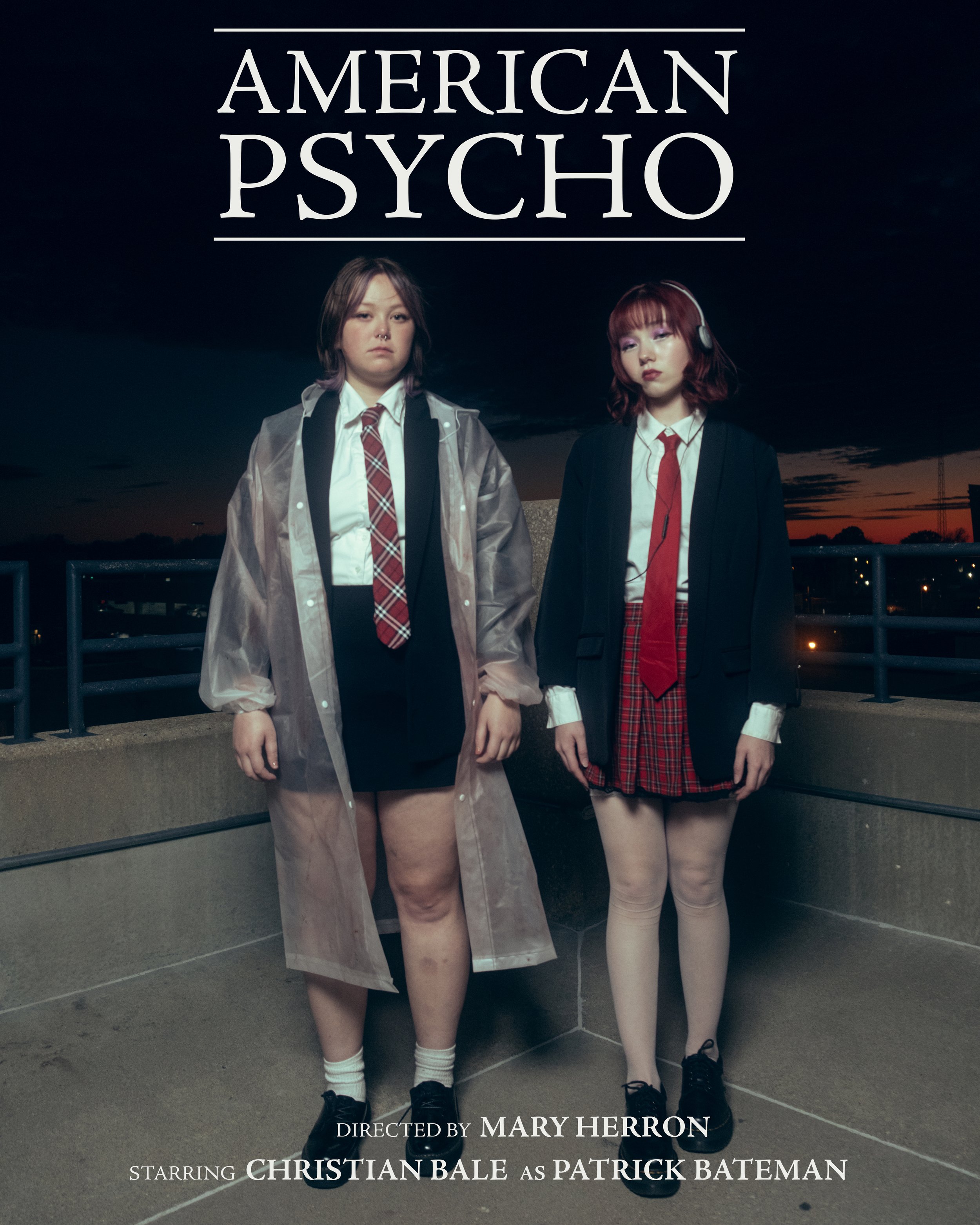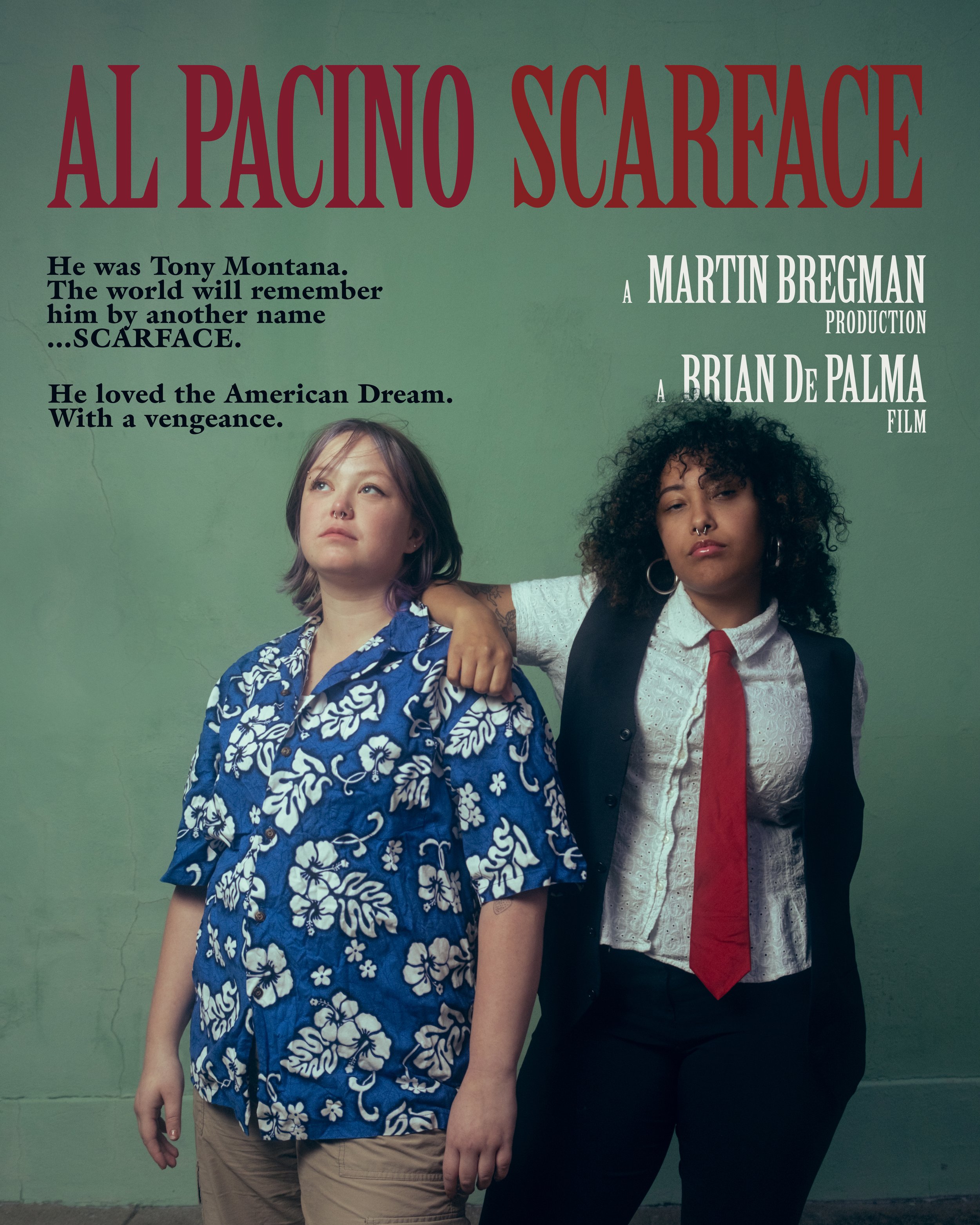Women in Film: a Critique on the Film Industry
Written By Alexis Loftis
Photography By Lauren Falk
Graphics By Desiree Daos
Modeled By Alexis Loftis, Lilly Templeton, Molly Pritchett, Mavis Parks, Halle Kory
The American Film Institute created a list detailing the 100 Greatest American Films of All Time. When looking down the list, you might see a recurring pattern of male leads. Often, we see an amazing female cast in these movies, only to find out most of them are supporting roles. We see very few leading ladies in what are known as some of the best films ever made. In most of these movies, women are not perceived as powerful or strong, but more docile, submissive–even as a damsel in distress. Although a plethora of the movies on this list are old classics, we still see this pattern today with stereotypical “film bro movies’' such as “Wolf of Wall Street,” “American Psycho,” “Fight Club,” etc. Movies like these often exclude women in their main cast, and, even if they are included, they are only there for looks, never adding anything important to the plot of the movie. The men in these stories are typically the ones to push the storyline forward.
So, what exactly is a “film bro”? A “film bro” is said to be somebody who has a very limited viewpoint in the films they watch while simultaneously being arrogant and opinionated about a film. As women, we do not have representation in films in general, especially in the dark hyper-masculine ones. This contributes to “toxic masculinity” and outright misogyny. Men want to live through these “macho” characters and don't think women can possibly live up to those expectations of being tough, sharp, or clever. There's a very narrow viewpoint in this “film bro” trope: good cinema has to be violent, sexual, or overtly masculine. These movies are made by and for men with little consideration of the female perspective.
Every so often when we do see a movie with strong female characters, they aren’t typical heroes of the story, even when they are more capable than the male lead. Take “Star Wars” for example: throughout the entire series, Princess Leia proves to be a perceptive, calculated, strong woman and in some ways is a lot more capable than Luke. Who ends up saving the day though? Luke Skywalker. Not to say these films are bad, but sadly in a way, they can condition women to feel as though they are inherently meant to be the nurturer, the supporter, to provide aid, or to be the sidekick. Nevertheless, when women are the lead of a movie, most of the time it is written off as the dreaded term, “chick flick.”Men typically want women to stick to their “chick flicks” and for them to stay to their male-dominated films. We can observe this phenomenon with the outrage towards new media like the all-female Ghostbusters, the female Doctor Who, or the possibility of a female James Bond. All of these situations were met with large outcry by male fans asking why these beloved male characters need to be women. The truth is, they are right. But we need to look deeper into this and explore why women are feeling the need to take over male characters.
Women are very limited in their choices of being a stereotypical “badass” female lead. Not saying Black Widow, Wonder Woman, or Captain Marvel aren’t powerful, but no one questions why there isn't a male equivalent to these roles. It's because it’s not even thought of as being an option, possibility, or a necessity because women are inherently seen as being inadequate or flawed. Women in front of and behind the screen face discrimination in Hollywood every day. Women make up half of the population but only have around a third of the speaking parts in movies. This is largely because the majority of directors, let alone prominent directors, are male. The film world is predominantly movies created by men, for men. When we barely have any female representation behind the camera we are not going to see any representation in front of the camera either.
How can we fix this problem? We can start by supporting more female-directed and female-led films. Recommend to your peers alternatives to their male-lead blockbusters. Call out sexist discourse about these films online. Most importantly, go to the movies! Support these female-led movies with your pockets so we can begin to see equality on the big screen. We need to take steps to enact real change if we want more female-led cinema.






